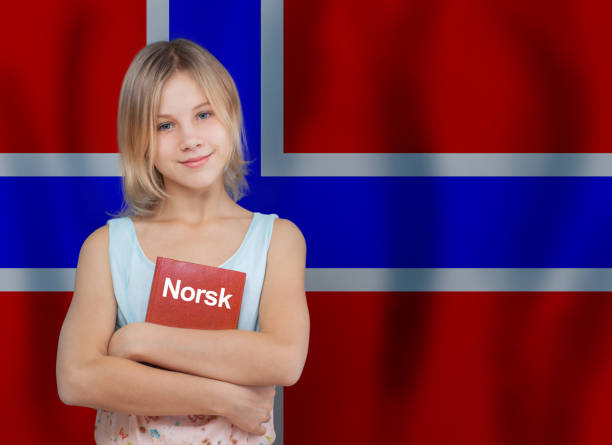Unveiling Opportunities for Ghanaian Students in Norway (2024)
For Ghanaian students with a thirst for knowledge and a yearning for adventure, Norway beckons as a land of exceptional education, breathtaking fjords, and innovative spirit. This comprehensive guide explores the exciting possibilities for Ghanaians pursuing higher education in Norway in 2024, with a particular focus on scholarships and grants.
Advertisements
Embracing the Norwegian Education System
A World-Class Learning Environment:
Norway boasts a world-class education system renowned for its emphasis on research, critical thinking, and student-centered learning. Universities in Norway offer a diverse range of programs at the Bachelor’s, Master’s, and PhD levels across various disciplines. Here’s a glimpse into what Ghanaian students can expect:
- Focus on Research and Innovation: Norwegian universities prioritize research and innovation, providing students with opportunities to participate in cutting-edge research projects alongside renowned professors. Imagine collaborating on research related to renewable energy solutions as part of your Master’s program in sustainable engineering, potentially contributing to Norway’s ambitious climate goals.
- Strong Emphasis on English: English is the primary language of instruction for many Master’s programs in Norway. This eliminates language barriers for Ghanaian students proficient in English and allows them to seamlessly integrate into the academic environment.
- Focus on Practical Application: Many programs in Norway combine theoretical knowledge with practical application. This can involve internships, project-based learning, and field trips, equipping students with valuable skills sought-after by employers.
Understanding the Educational Landscape:
The Norwegian education system is comprised of universities, university colleges (høyskoler), and specialized universities of science and technology. Universities offer a broader range of academic programs, while university colleges often specialize in specific fields like vocational training or teacher education.
Equivalency of Qualifications:
Advertisements
Before applying to a program in Norway, ensure your Ghanaian secondary school leaving certificate (SSSCE) or its equivalent meets the entry requirements. The Norwegian Agency for Quality Assurance in Education (NOKUT) assesses foreign educational qualifications.
Charting Your Course: Scholarship and Grant Opportunities
Financing Your Studies:
While studying in Norway offers exceptional benefits, the cost of living and tuition fees can be a significant hurdle for Ghanaian students. However, several scholarship and grant opportunities can make your academic dream a reality. Let’s explore these avenues:
-
Government Scholarships for Ghanaians:
Research scholarship programs offered by the Norwegian government, such as the Quota Scheme and NORPART. These programs might target specific fields aligned with Norway’s development priorities or involve partnerships between Norwegian universities and universities in Ghana.
- Quota Scheme: Explore details and eligibility criteria on the Norwegian Ministry of Education and Research website (might require translation): This website provides a link to the Quota Scheme.
- NORPART: Research partner universities in Ghana and explore scholarship opportunities on the NORPART website.
-
University Scholarships:
Many Norwegian universities offer merit-based scholarships specifically for international students, including Ghanaians. Explore the websites of universities offering programs aligned with your area of interest. These scholarships might partially cover tuition fees or living expenses.
-
Ghanaian Scholarships and Grants:
The Ghanaian government, educational institutions, and private organizations in Ghana might offer scholarships or financial aid programs specifically for studying abroad. Explore relevant websites or inquire at the Ghanaian Ministry of Education or scholarship foundations.
-
International Scholarships:
Organizations like the Fulbright Program, Erasmus Mundus, or the Gates Cambridge Scholarship offer funding for international students, including potential opportunities for Ghanaians. Research these programs to see if they align with your field and nationality. Utilize online scholarship search engines or explore the websites of these organizations.
Remember, a comprehensive scholarship search strategy is crucial. Explore various avenues, meet deadlines, and craft compelling applications to maximize your chances of securing funding.
Building a Strong Application for Success
Standing Out from the Crowd:
The application process for Ghanaian students seeking to study in Norway can be competitive. Here’s how to strengthen your application package:
-
Exceptional Academic Record:
Maintain a strong academic record in your secondary school studies. A stellar SSSCE score demonstrates your academic ability and preparedness for the rigors of higher education in Norway.
-
English Language Proficiency:
Demonstrate your English language proficiency through tests like TOEFL or IELTS, meeting the specific requirements of your chosen program.
-
Compelling Motivational Letter:
Craft a compelling motivational letter that articulates your academic goals, research interests, and clear alignment with your chosen program in Norway. Highlight how your background, skills, and future aspirations contribute to the program’s objectives and potentially benefit Ghana’s development upon your return.
- Strong Letters of Recommendation:
Secure strong letters of recommendation from teachers or professors familiar with your academic work and potential for success in graduate studies.
- Research Proposal (Optional):
If applicable, include a well-written research proposal outlining your research interests and how they align with the program’s focus. This showcases your research skills and potential contribution to the field, especially for research-oriented programs.
- Highlight Relevant Work Experience (Optional):
If you have relevant work experience in your field of study, showcase how it has equipped you with valuable skills and knowledge. This demonstrates your practical understanding of the field and your potential to contribute meaningfully to your chosen program.
- Cultural Understanding and Adaptability:
Showcase your understanding of Norwegian culture and your enthusiasm to integrate into Norwegian society. This demonstrates your commitment to the program and your ability to thrive in a new environment. Consider including relevant experiences or volunteer work related to Norway or similar Nordic countries in your application materials.
Remember to tailor your application materials to each program you apply to. Address the specific requirements and selection criteria outlined by the university or scholarship provider.
Practical Considerations for Ghanaian Students
- Planning Your Journey:
Beyond academics and scholarships, here are some practical considerations for Ghanaian students venturing to Norway:
- Visa Requirements:
Research visa requirements well in advance of your application. You’ll likely need a student visa to study in Norway. Explore the Norwegian Directorate of Immigration (UDI) website for details and application procedures.
- Cost of Living:
The cost of living in Norway can be higher than in Ghana. Factor in tuition fees, accommodation, food, transportation, and other living expenses when budgeting for your studies. Explore scholarship and grant opportunities to bridge the financial gap.
- Student Housing:
University housing is generally the most affordable option for students in Norway. Apply for student housing early, as there can be high demand. Explore alternative options like shared apartments if student housing is unavailable.
- Part-Time Work Opportunities:
With a valid student visa, you might be able to work part-time (up to 20 hours per week) during semesters and full-time during breaks. Explore on-campus job opportunities, freelance work (if permitted by your visa), or part-time jobs related to your field of study.
Building a Fulfilling Academic Experience in Norway
- Making the Most of Your Time in Norway:
Studying in Norway offers more than just academic excellence. Here’s how to maximize your experience:
- Embrace the Language:
While English is commonly used in academia, consider learning basic Norwegian phrases to integrate more seamlessly into Norwegian life. This demonstrates your respect for the local culture and can enhance your overall experience. Utilize language learning apps, online resources, or consider enrolling in language courses before or during your studies.
- Academic Support Services:
Norwegian universities offer excellent academic support services for international students. Utilize resources like writing centers, tutoring services, and academic advisors to excel in your studies. Don’t hesitate to seek help from professors or teaching assistants if you encounter challenges.
- Explore Internship Opportunities:
Many graduate programs in Norway incorporate internship opportunities. Actively seek internship placements related to your field of study. This provides valuable work experience, allows you to apply your academic knowledge in a practical setting, and potentially strengthens your future career prospects, especially upon returning to Ghana and contributing to its development.
- Cultural Immersion:
Embrace the opportunity to experience Norwegian culture. Participate in student organizations, explore Norway’s breathtaking scenery, sample traditional cuisine, and connect with local Norwegians. This fosters cultural understanding, creates lasting memories, and allows you to develop as a global citizen. Consider joining Ghanaian student organizations or international student groups to connect with people from diverse backgrounds and broaden your social circle.
Cultivating Your Future: A Ghanaian Student Thriving in Norway
A Launchpad for Personal and Professional Growth:
Studying in Norway equips you with valuable knowledge, skills, and experiences that empower you to shape your future. Here’s how this experience can contribute to your personal and professional growth:
-
Enhanced Knowledge and Skills:
Norwegian universities provide a rigorous academic environment, allowing you to deepen your knowledge in your chosen field. You’ll acquire critical thinking, research, and analytical skills highly sought after by employers globally.
-
Global Network and Cross-Cultural Communication Skills:
Studying alongside international students fosters intercultural communication skills and allows you to build a global network of peers and professors. These connections can be invaluable resources as you embark on your future career path, potentially leading to international collaborations or opportunities.
-
Personal Development and Independence:
Living and studying abroad fosters independence, resilience, and adaptability. You’ll learn to navigate a new culture, manage your finances, and overcome challenges, all of which contribute to your personal growth.
-
Contributing to Ghana’s Development:
The knowledge and skills acquired in Norway can be instrumental in driving Ghana’s development upon your return. Consider pursuing research relevant to Ghana’s needs or explore opportunities to work for Ghanaian organizations leveraging your expertise gained in Norway.
Remember, this journey requires dedication and perseverance. Embrace the challenges, actively seek out opportunities, and make the most of your time in Norway.
Advertisements






